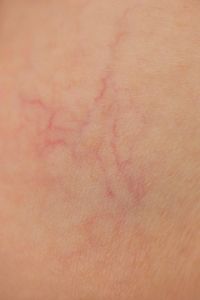There are times when rosy red cheeks or a flushed forehead are perfectly normal -- when your boss calls you out in a meeting and you're embarrassingly unprepared, when you're skiing down a mountain into the wind, or when your body temperature is elevated after a hard workout. When you're crawling into bed at night after washing your face, however, should not be one of those times.
"If your face gets red after you wash it, something needs to be changed in your washing regimen," says Chris Adigun, MD, assistant professor of dermatology at NYU Langone Medical Center in New York City. "It's usually a sign that you're not being gentle enough: Either your face wash itself is too abrasive, or you're using some kind of traumatic tool and causing irritation."
Advertisement
But who would willingly use a "traumatic tool" on their faces? Surprise: Many people do, unknowingly, every day. "We've been taught by our mothers' generation to use a wash cloth or a loofah on our faces," says Adigun. "But this causes irritation, and can also traumatize acne -- which can cause scarring and pigmentation issues."
Instead, Adigun says, you should wash your face with just a gentle cleanser, water, and your hands. Don't choose cleansers with a lot of suds or foam (unless they're made specifically for sensitive skin), since they can dry skin out, making redness and irritation worse. Stick to washing just twice a day (once if your skin is very dry) -- unless you get really sweaty or dirty in between -- and check the temperature, too: Water that's too hot can also contribute to a feverish-looking face.
Make sure you rinse your face thoroughly after washing, suggests Diane S. Berson, MD, assistant clinical professor of dermatology at Weill Medical College of Cornell University in New York City; otherwise, residue from your cleanser can cause irritation. And apply a moisturizer to your skin while it's still damp, to keep it from drying and cracking. (This is especially important, Berson says, if you're on acne medication.)
If none of these strategies help to calm your face's fiery glow, talk to your dermatologist: A bad reaction to even the gentlest cleansing could mean that you have an underlying allergy or skin condition, like rosacea, that needs professional treatment.
Advertisement

